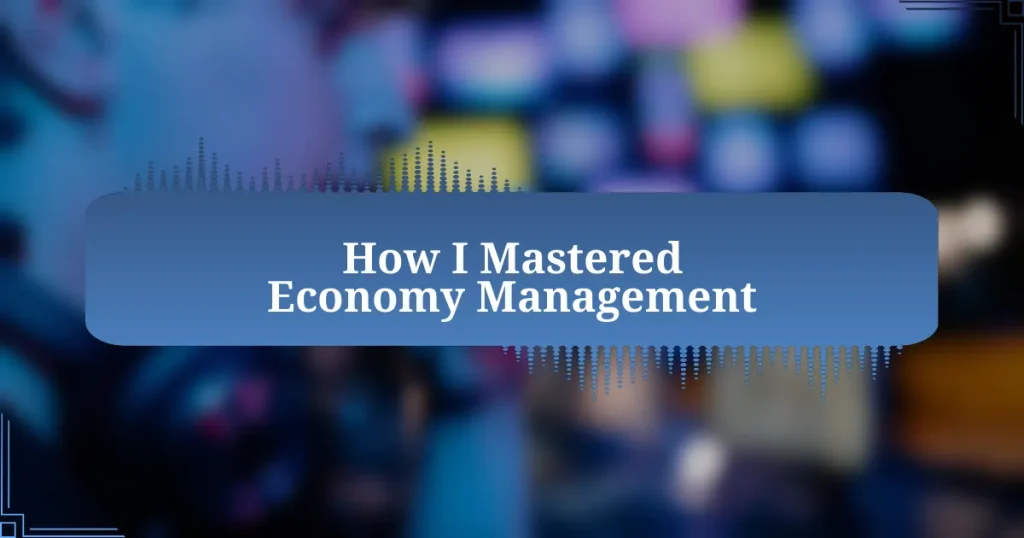Key takeaways:
- Effective economy management in CS2 requires careful budgeting and communication among teammates regarding purchases.
- Understanding when to save versus when to spend, including the strategic use of eco rounds, can significantly alter match outcomes.
- Tracking the enemy’s economy and making informed decisions can offer tactical advantages in gameplay.
- Fostering a positive team atmosphere and maintaining patience during critical moments are essential for long-term success in managing game finances.
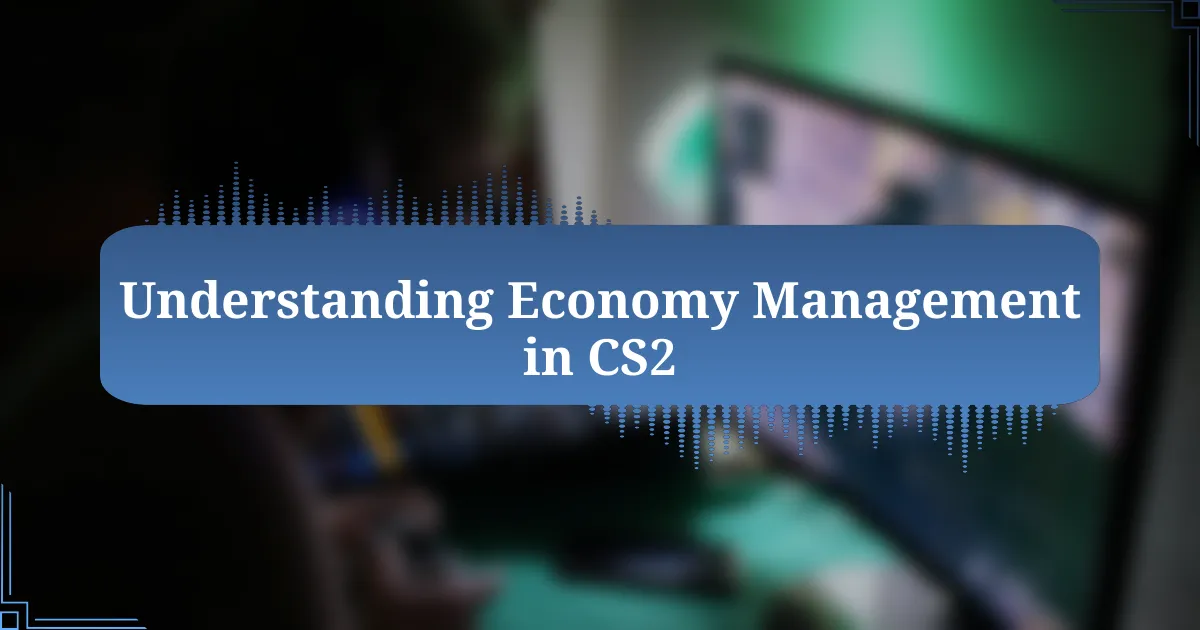
Understanding Economy Management in CS2
In Counter-Strike 2, understanding economy management is crucial for success. I vividly recall a match where my team’s careful budgeting led us to victory. Rather than splurging on expensive weapons early, we prioritized utility and armor, which made all the difference in key rounds.
The game’s economy system is akin to a delicate balance beam; one misstep can tip the scales in favor of the opposing team. Have you ever experienced the frustration of a teammate insisting on buying an AWP, leaving the rest of the team broke? Trust me, I’ve been there. It’s essential to communicate effectively about purchasing decisions so that everyone is on the same page.
Mastering economy management means recognizing when to save and when to spend. I’ve learned that sometimes, a strategic save round can be more valuable than a hasty buy. This mindset shift not only strengthens the team’s overall performance but also fosters a sense of camaraderie as everyone rallies behind a shared goal.
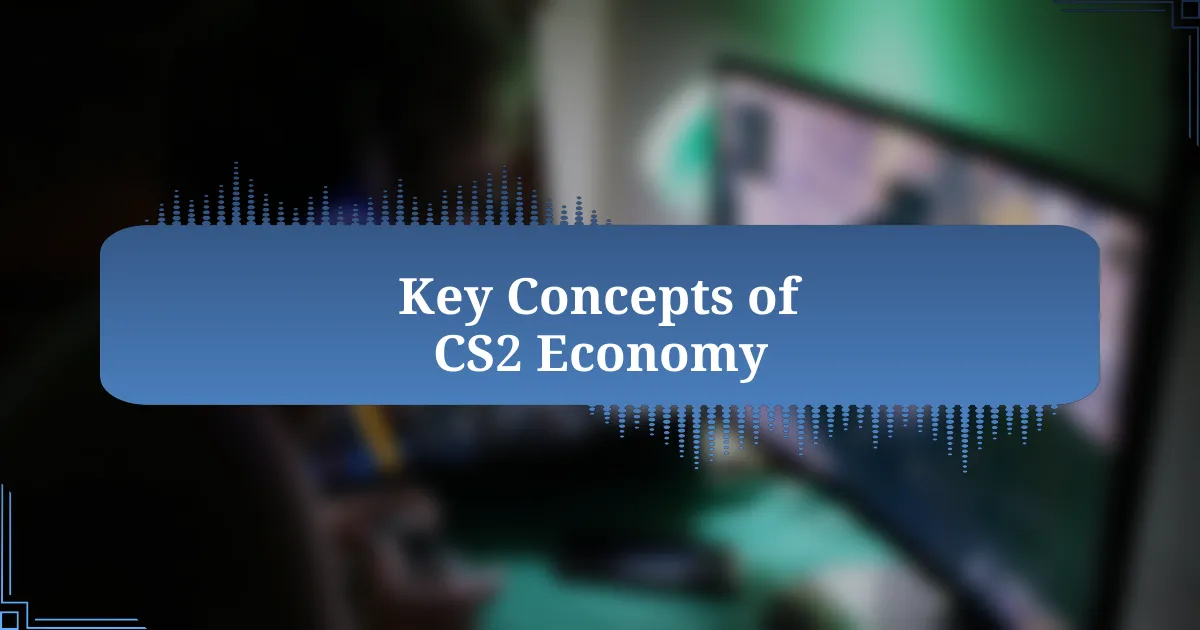
Key Concepts of CS2 Economy
In CS2, economy management revolves around understanding the value of every dollar. I still remember a game where we decided to forego an early rush and opted to save instead. That saved cash allowed us to buy rifles in the following round, turning the tides when we faced an opponent that was overconfident in their spending. Would we have made that choice without a solid plan? Probably not.
One key concept I often emphasize is the importance of timing your purchases. There was a moment when I witnessed a player buy an expensive high-powered weapon far too early. The gatekeeper for the next round suddenly turned into our biggest liability as they couldn’t afford necessary equipment for the following engagements. It’s a painful lesson that taught me the importance of being methodical rather than impulsive.
Another essential aspect is the notion of eco rounds, which are often misunderstood. Reflecting on my experiences, I learned that convincing teammates to embrace eco as a tactical choice can create a powerful momentum shift. When we pooled our resources for a full buy after a successful eco, it felt like a united front. It not only strengthened our arsenal but also brought a team spirit that was invigorating to witness firsthand.
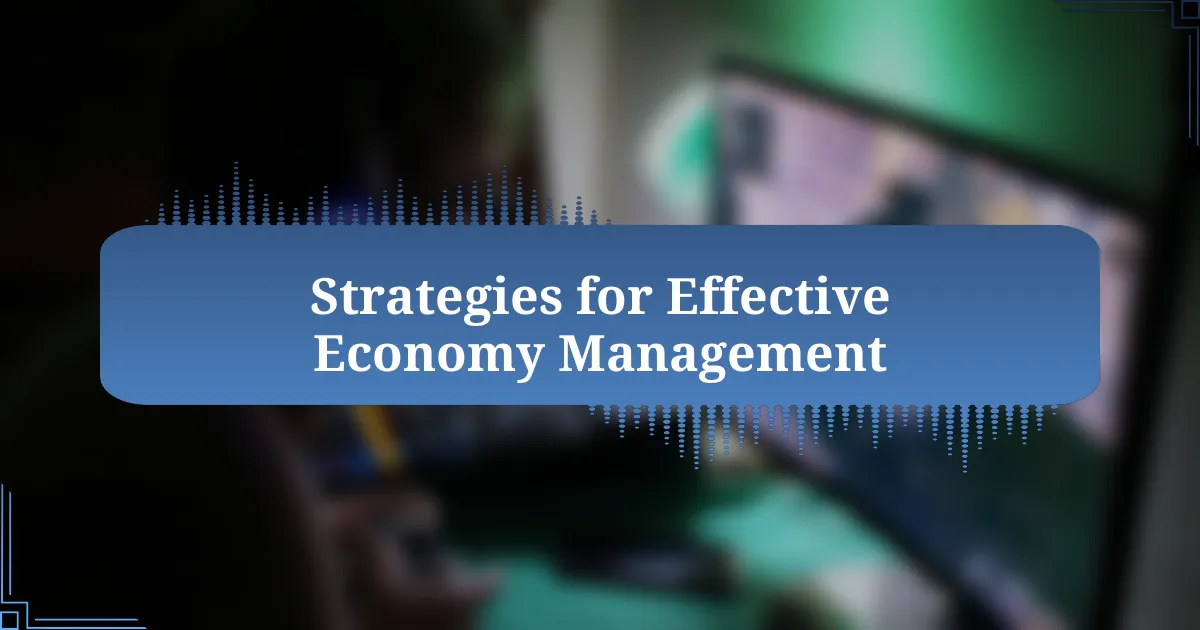
Strategies for Effective Economy Management
One strategy that has fundamentally changed my approach to economy management is the practice of communicating effectively with my team about buys. Believe me, I’ve been in countless situations where lack of communication led to mismatched purchases. Those instances where I suggested a “force buy” based on a last-minute win filled my gut with anxiety, yet our team’s synergy afterward made every risk worth it. How could we harness our resources more efficiently if we just talked more?
Additionally, I’ve found that tracking the enemy’s economy can give you a huge edge in planning your own purchases. On one occasion, after noticing the opponents didn’t buy in the previous round, I suggested an aggressive push. By anticipating their weaker arsenal, we capitalized on that knowledge, catching them off guard. It reinforced the idea that understanding not just your economy, but your opponents’ as well, can unlock strategic opportunities.
Lastly, I can’t stress enough the significance of salvaging weapons. There were times when I picked up a fallen weapon, thinking it would merely serve as a temporary fix. To my surprise, those instances often turned into game-changers. Imagine coming back into a round with a high-powered rifle that could potentially turn the tide—it’s those little decisions that can leave a lasting impact and change the dynamics of an entire match. Have you ever had a moment where one small decision led to a significant victory? I’ve definitely had my share, and it’s those experiences that motivated me to refine my economy management further.
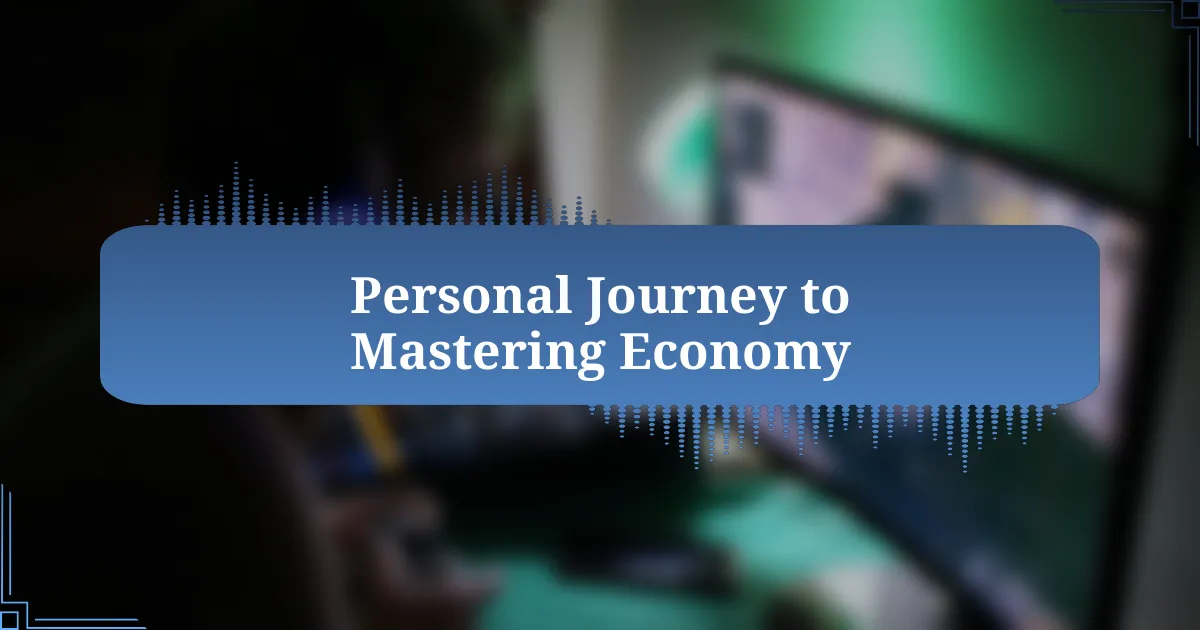
Personal Journey to Mastering Economy
My journey to mastering economy management in Counter Strike 2 was anything but straightforward. I remember one pivotal match where our team had a significant lead, but instead of pocketing our advantage, I pushed for an unnecessary purchase. The result? A devastating loss due to our depleted resources. That moment taught me that conserving money isn’t just about saving; it’s about ensuring you’re set up for future rounds. Have you ever felt that immediate dread when your team runs low on cash? I certainly have, and it was those moments that ignited my drive to truly understand the economy.
I also learned to embrace the power of patience. There was a match where I advocated for an eco round, even when some teammates were itching to buy. It felt uncomfortable at first, like standing against the tide. But by the end of that round, our investment in saving allowed us to dominate the next, turning the tables completely. It was a tough lesson in restraint but one that fundamentally shaped my approach. Can you recall a time you had to rally your team around a reluctant strategy? That’s what growth in this game often looks like.
Another turning point was realizing that every decision affects the entire team’s morale. I would often get frustrated after a bad buy, and it reflected in my gameplay. Yet, after reflecting on those experiences, I understood that fostering a positive atmosphere during discussions about our economy choices could resound throughout the match. It’s almost like a ripple effect; when I stay calm and share insights, my teammates respond positively. How do you manage the emotional highs and lows during tense rounds? For me, it’s become essential to channel those emotions into constructive conversations about our economy, reinforcing unity and strategic focus.











